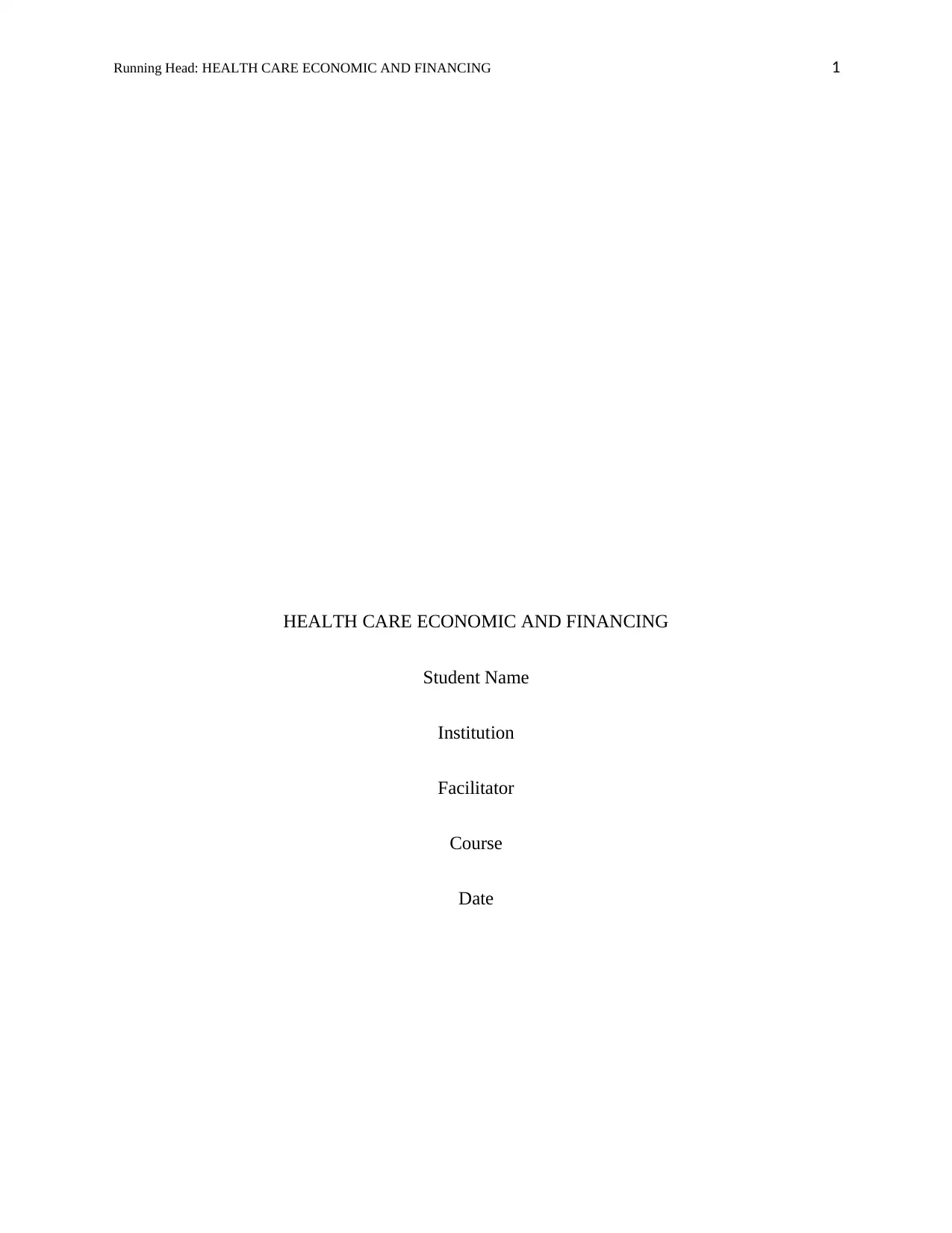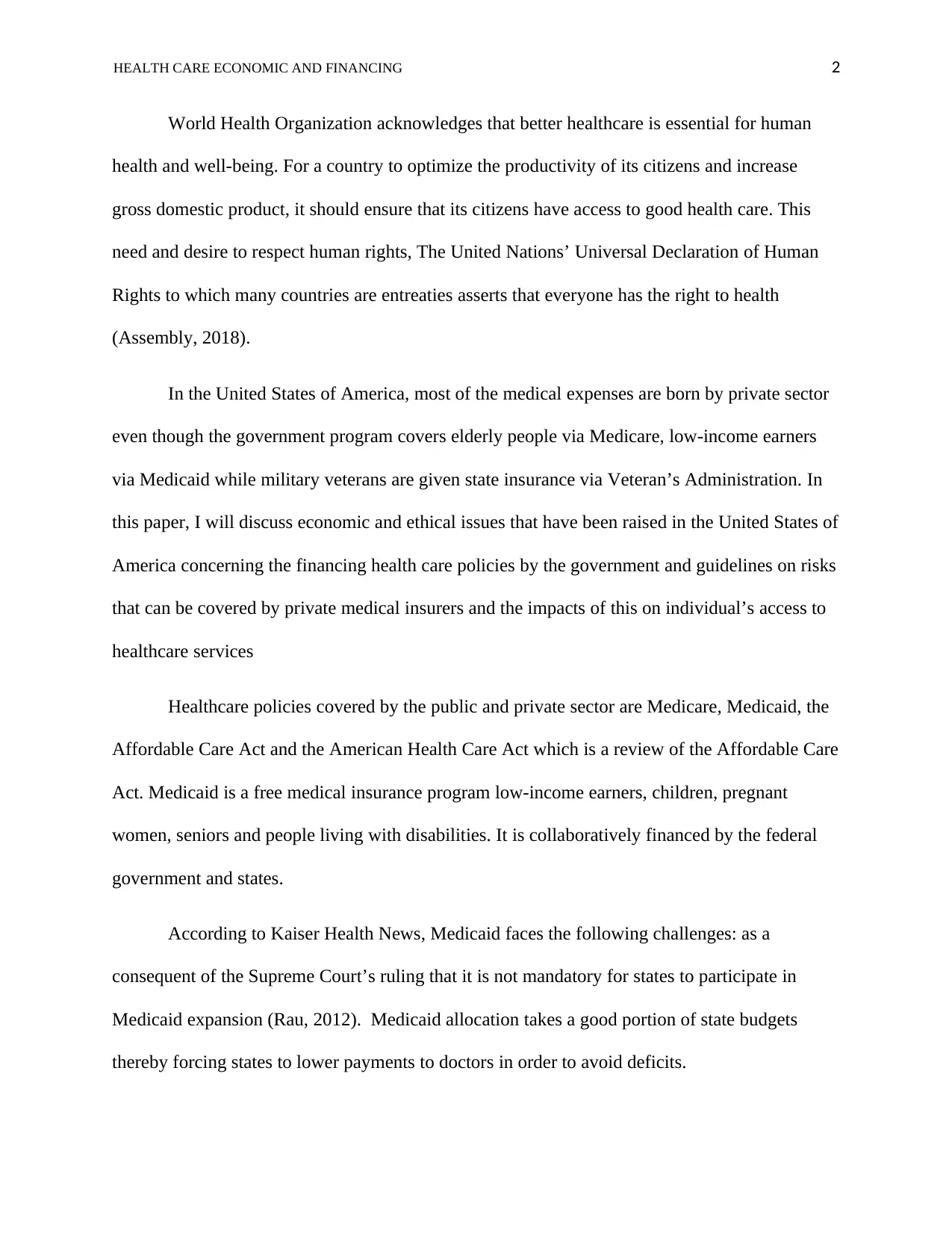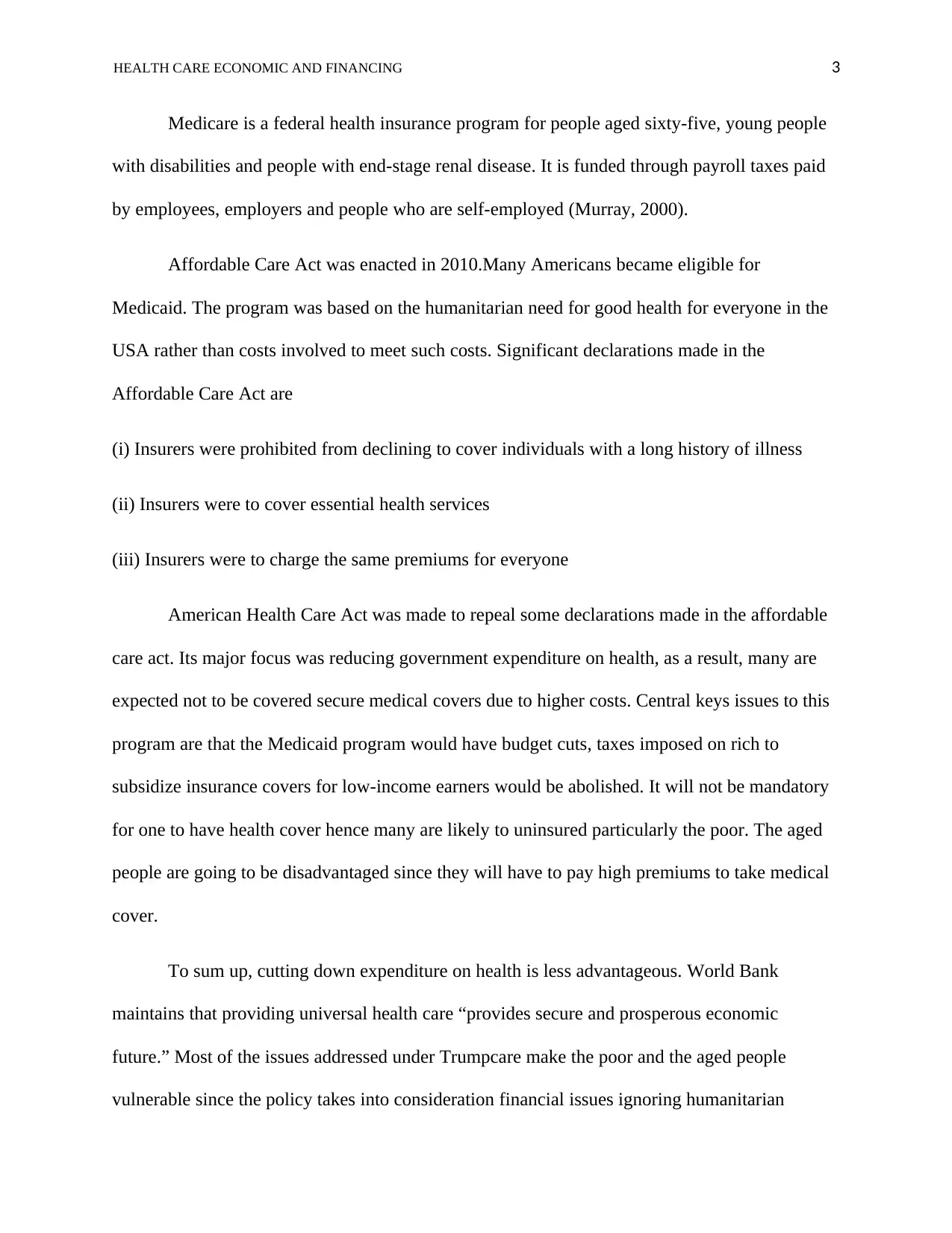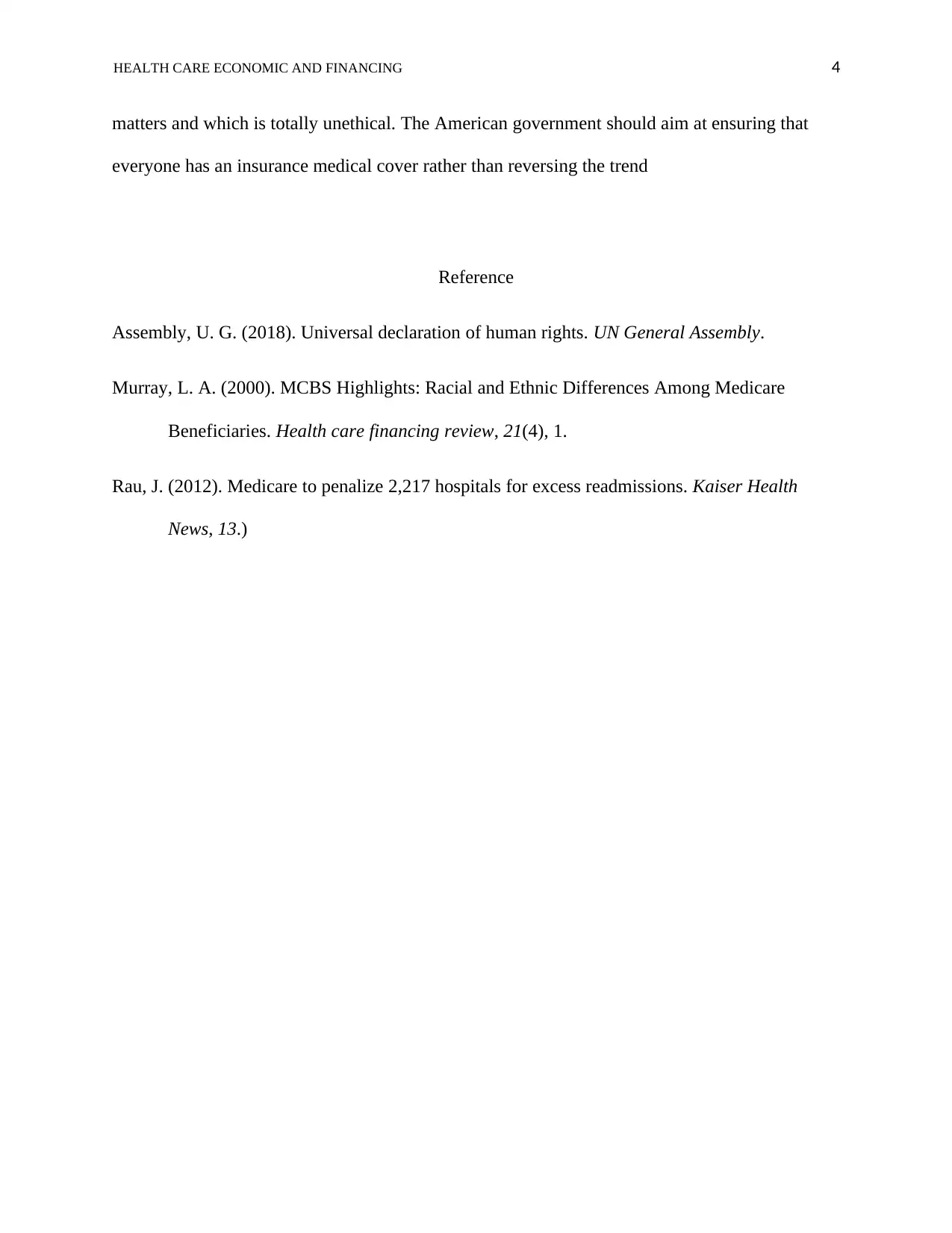Healthcare Financing: Policy Decisions and Ethical Considerations
VerifiedAdded on 2023/05/28
|4
|755
|255
Discussion Board Post
AI Summary
This discussion board post delves into the critical issues surrounding health care financing in the United States, addressing the complex interplay between policy decisions, ethical considerations, and access to care. The author examines the roles of both public and private sectors, including Medicare, Medicaid, the Affordable Care Act, and the American Health Care Act, highlighting their respective impacts on different segments of the population, such as the elderly, low-income earners, and those with pre-existing conditions. The post explores the ethical implications of financing decisions, particularly concerning the balance between cost containment and ensuring accessible, high-quality care for all citizens. It references relevant sources like the World Health Organization and the World Bank to underscore the importance of universal health care for economic prosperity and human well-being. The author critiques the potential consequences of policies that prioritize financial considerations over humanitarian concerns, particularly for vulnerable populations. The assignment concludes by advocating for policies that prioritize equitable access to medical coverage for all.
1 out of 4











![[object Object]](/_next/static/media/star-bottom.7253800d.svg)